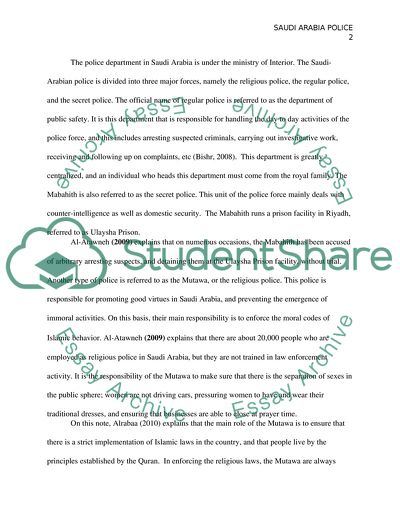Cite this document
(Saudi Arabia Police Term Paper Example | Topics and Well Written Essays - 3250 words, n.d.)
Saudi Arabia Police Term Paper Example | Topics and Well Written Essays - 3250 words. Retrieved from https://studentshare.org/social-science/1831253-saudi-arabia-police
Saudi Arabia Police Term Paper Example | Topics and Well Written Essays - 3250 words. Retrieved from https://studentshare.org/social-science/1831253-saudi-arabia-police
(Saudi Arabia Police Term Paper Example | Topics and Well Written Essays - 3250 Words)
Saudi Arabia Police Term Paper Example | Topics and Well Written Essays - 3250 Words. https://studentshare.org/social-science/1831253-saudi-arabia-police.
Saudi Arabia Police Term Paper Example | Topics and Well Written Essays - 3250 Words. https://studentshare.org/social-science/1831253-saudi-arabia-police.
“Saudi Arabia Police Term Paper Example | Topics and Well Written Essays - 3250 Words”, n.d. https://studentshare.org/social-science/1831253-saudi-arabia-police.


